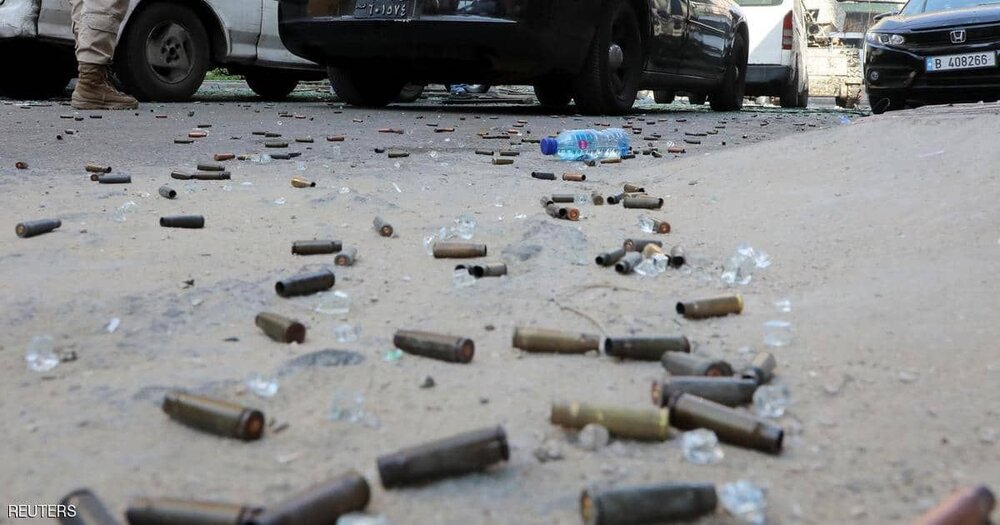By Abir Bassam
TEHRAN - After the Tayouneh massacre, the issue of granting a general amnesty to a convicted war criminal in Lebanon is in question once again. Such a terrible incident makes the person wonder about what was going on in Samir Geagea’s mind, the head of the Lebanese Forces [LFP], to commit such a crime on the 14th of October. The crime brought back into the Lebanese people consciousness the history of Geagea and his Forces, and what kind of future awaits Lebanon, since the attitude towards the “others” is almost back on the surface.
The reckless criminal behavior in Tayouneh has taken us back in our thoughts to 1975, which is overwhelmed with memories of the Lebanese Civil War; the series of war crimes the LFPs committed during that period of history in Lebanon. It came back with even greater worries. It is not a matter of Hezbollah being weaker or stronger than the Palestinian Fedayeen, or the matter of LFPs having 15 thousand fighters and being much stronger, it is a matter of the mentality that rules the ideology of civil wars, which has never left Geagea’s mind.
A destructive ideology! It leads to destroying a country, not building one. Geagea did not only fight the “others”, he fought, killed, and massacred his own people, i.e. the Christian Maronites, such as Dany Chamoun, Tony Franjieh, and their families. He blew up two churches and killed the prayers. That is if we don’t recall the assassination attempt against the Lebanese Prime Minister, the late Rashid Karami, and the War of Elimination in 1990 against President Michael Aoun. However, what does that tell us? There is a clear-cut answer: Geagea was trying to eliminate all his competitors in Lebanon.
He was trying to be the sole strong Christian Maronite leader. On the other hand, he always introduced himself as free Lebanese, who, unfortunately, were the best to serve the American and pro-Zionist policies in Lebanon. The Lebanese memory has not faded away yet. Many witnesses have given their testimony about training the military forces of the Phalanges by the “Israeli” officers in Dar El Mokhalles, the Savior Monastery, in the Chouf District during and months before the “Israeli” invasion of Lebanon in 1982. After the assassination of Bachir Gemayel, these military forces became the core of the Lebanese Forces.
Accordingly, do we really want to go back to 1975? Can we now in 2021 call the Arab League and the Syrians, so that we can protect the Lebanese Christians, or preserve Lebanon’s unity. It is impossible. The Syrians will never come back to Lebanon with their forces, even if the international atmosphere permits it. Hence, what is the result of any eternal war in Lebanon? Clearly, it is one of the two: either it is the division of Lebanon and the end of it as we know it, or it is the end of one of the parties, which is not even remotely possible.
Obviously, Samir Geagea, who sees himself as the ultimate leader of Lebanon, can’t control all the five districts of Lebanon, in particular, the South, Becaa, and the North. These districts may end up as a set of sectarian cantons, or have the option of becoming part of Great Syria. The idea can be definitely welcomed by many parties that doubt the ability of Lebanon to economically survive as an independent state.
Currently, for the Syrians, it might be a liability, but futuristically speaking this would certainly empower Syria even more in its war against “Israel” and as a regional power. We can only imagine investments in water resources, agricultural growth, industrial advancement, easy access to higher education and health care, and a well-protected state by the people, the army, and the resistance. As it has been said, we can only imagine. But we cannot imagine Syria accepting to be threatened through its borders with Lebanon again; and certainly, we cannot go back to 1975!


No comments:
Post a Comment